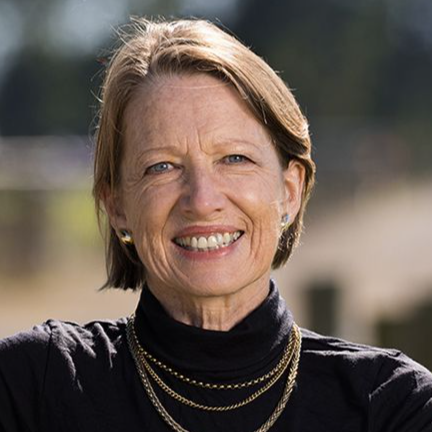Dr Jacqueline Rowarth is an Adjunct Professor at Lincoln University, a director on the board of governance of DairyNZ, Ravensdown and Deer Industry New Zealand and a member of the Scientific Council of the World Farmers’ Organisation.
OPINION

Farmers are under pressure from a changing climate and cutting science funding won't help. Photo / Brett Phibbs
Dr Jacqueline Rowarth is an Adjunct Professor at Lincoln University, a director on the board of governance of DairyNZ, Ravensdown and Deer Industry New Zealand and a member of the Scientific Council of the World Farmers’ Organisation.
OPINION
The end of the National Science Challenge funding, following shortly after the Government’s requirement for budget cuts from the Crown Research Institutes, is bad news for science.
The combination has been associated with significant job losses and fears of an accelerated exit of expertise.
The long-term implications are not just the research that won’t be done for New Zealand, but also the signals sent to current school children.
They are making decisions about which subjects to take to underpin a great career making a difference to the world – they are needed in science but aren’t seeing a future in which they are rewarded.
The fact that our teenagers rank highly in creativity but are dropping in comparison with other countries in English, science and mathematics should be of considerable concern: Students tend to focus on areas that earn praise, rather than those where the label is “Could do better if tried”.
The National Science Challenges were launched in 2014 based on the need to do better.
They were established to tackle the biggest science-based issues and opportunities facing New Zealand and brought together “the country’s top scientists to work collaboratively across disciplines, institutions and borders to achieve their objectives”.
This proved a challenge in itself; Our Land and Water, for instance, took two years to get going.
The delay reflected the complexity of the problems for land management and the impact on water in the primary sector and the researchers needed.
These problems have not been solved, but the funding has been terminated.
New Zealand needs the next crop of potential expertise to be coming through the education system now.
We need students with an interest in solving problems from a foundation of knowledge of basic principles, on which creativity can operate.
They need to know that they will be valued and rewarded in their choices.
Obtaining the necessary expertise from overseas is unlikely for two reasons.
One is New Zealand’s unique combination of recent soils, low population base and economic reliance on primary production.
The second is that other countries are facing the same challenge.
The Food and Agriculture Organization of the United Nations report on funding released last year, suggested that even after adjusting for inflation, global investments in agricultural research and development, and spending per capita, have increased steadily over the past 30 to 40 years.
This is despite the substantial growth in the world’s population from approximately 5 billion to more than 8 billion now.
Listen to Jamie Mackay interview Dr Jacqueline Rowarth on The Country below:
The authors cautioned, however, that investment in research and development generally had risen faster than that in agriculture and emphasised that “the need for agricultural R&D is far greater now than it was in the past because of the tremendous challenges facing the planet, such as climate change and the broader range of research areas that need to be addressed”.
This Global Science Challenge was discussed at the recent meeting of the World Farmers’ Organisation in Rome with the lens of “assistance to change”.
The final day of the meeting summed up the major problems.
Farmers globally are already under pressure from a changing climate.
“All over the world, they are adapting the way they work to a changing climate, recovering from increasing losses and damages and striving to make their farm operations more economically and environmentally sustainable.”
The WFO has found that agrifood systems receive only a small fraction (4.3% in 2019/2020) of global climate finance, with an even smaller fraction (2.4%) going to farmers.
The WFO recommended an increase in finance for agriculture, “making flows more predictable and ensuring finance is simply accessible to all farmers, especially women and youth”.
It pointed out that this was a precondition to “harvest the future”, creating an environment where young people see agriculture as “an attractive career path.”

The same is true for science and agricultural science.
Ongoing promotion of the food revolution and an urgent need for investment, including by the World Economic Forum last month, doesn’t stack up against the need to refine our current systems – which is what the National Science Challenges were trying to do, whilst evaluating the alternatives.
Much basic work has been done, but as yet, none of the alternatives have been found to be better.
Successful industries turn a comparative advantage into a competitive advantage.
Doing so requires enough discipline knowledge to identify the comparative advantage, and the knowledge and creative ability to compete globally.
In the past, New Zealand’s comparative advantage was considered to be in primary production based on the management of natural resources.
Some of the National Science Challenges focused on refining the management, adding value to the ongoing research in the Crown Research Institutes and Universities.
Whether the evolution of existing systems or revolution into others, great people with knowledge and creativity are required.
Creativity of the type tested in the Pisa assessment is not enough for what is needed to adapt to and overcome the food production and environmental management challenges ahead.
Funding for the research is imperative for the science itself and for the signals to the next generation.
New Zealand’s sustainable future depends upon it.